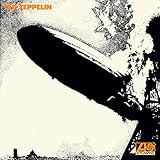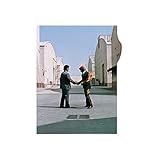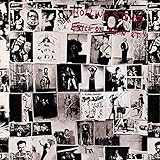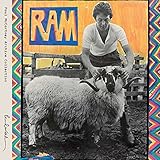Top 10 Classic Albums Critics Hated
The title is self-explanatory. The top of the list will include overwhelmingly negative reviews, but mixed reception will also be included if the album did go on to become a real cult classic. Black Sabbath's eponymous debut, "Black Sabbath", was initially met with skepticism by music reviewers. The groundbreaking blend of blues, rock, and what would later become known as heavy metal was too much for many critics, who dismissed it as simplistic and chaotic. However, over time, the album's distinctive sound and ominous tone were recognized as truly innovative, earning it a place in the annals of music history.
Black Sabbath's eponymous debut, "Black Sabbath", was initially met with skepticism by music reviewers. The groundbreaking blend of blues, rock, and what would later become known as heavy metal was too much for many critics, who dismissed it as simplistic and chaotic. However, over time, the album's distinctive sound and ominous tone were recognized as truly innovative, earning it a place in the annals of music history. Pretty amateur critics if you ask me.
 When "Led Zeppelin" by Led Zeppelin first hit the shelves, it didn't make the kind of splash you might expect given its legendary status today. Critics labeled it as derivative and lacking originality, drawing too heavily on American blues. But as years passed, this hard-hitting debut was acknowledged for its significant role in shaping the landscape of hard rock and heavy metal.
When "Led Zeppelin" by Led Zeppelin first hit the shelves, it didn't make the kind of splash you might expect given its legendary status today. Critics labeled it as derivative and lacking originality, drawing too heavily on American blues. But as years passed, this hard-hitting debut was acknowledged for its significant role in shaping the landscape of hard rock and heavy metal. But then, Led Zeppelin went on to become legends of rock music and proved the critics wrong!
 "Kick Out The Jams" by MC5 faced quite a backlash from critics upon its release. Its revolutionary energy and unpolished live sound were deemed too noisy and unrefined. However, as the years rolled by, these initially criticized aspects became celebrated hallmarks of the album, securing its spot as a pioneer in the punk and hard rock genres.
"Kick Out The Jams" by MC5 faced quite a backlash from critics upon its release. Its revolutionary energy and unpolished live sound were deemed too noisy and unrefined. However, as the years rolled by, these initially criticized aspects became celebrated hallmarks of the album, securing its spot as a pioneer in the punk and hard rock genres. "You've heard all this before from such notables as the Seeds, Blue Cheer, Question Mark and the Mysterians, and the Kingsmen. The difference here, the difference which will sell several hundred thousand copies of this album, is in the hype, the thick overlay of teenage-revolution and total-energy-thing which conceals these scrapyard vistas of cliches and ugly noise." - Lester Bangs, Rolling Stone
 Weezer's "Pinkerton" was initially a critical and commercial disappointment. At its release, it was criticized for its raw emotion, deeply personal lyrics, and departure from the band's earlier sound. Fast-forward a few years, and these very attributes would turn it into a cult classic, a testament to emotional vulnerability and artistic evolution in rock music.
Weezer's "Pinkerton" was initially a critical and commercial disappointment. At its release, it was criticized for its raw emotion, deeply personal lyrics, and departure from the band's earlier sound. Fast-forward a few years, and these very attributes would turn it into a cult classic, a testament to emotional vulnerability and artistic evolution in rock music. "Ignore the lyrics entirely" - Melody Maker
Most reviews were actually not that negative, fro example Rolling Stone gave it a 3/5, but it surprisingly still ended up "third worst album of 1996" in the Rolling Stone critic's poll.
 Queen's "Jazz" faced harsh criticism when it first came out. Critics found it disjointed and lacking in the cohesive artistry of its predecessors. But with time, tracks like "Don't Stop Me Now" and "Fat Bottomed Girls" grew in popularity, and the album's eclectic style was reinterpreted as a creative exploration, helping solidify Queen's enduring legacy.
Queen's "Jazz" faced harsh criticism when it first came out. Critics found it disjointed and lacking in the cohesive artistry of its predecessors. But with time, tracks like "Don't Stop Me Now" and "Fat Bottomed Girls" grew in popularity, and the album's eclectic style was reinterpreted as a creative exploration, helping solidify Queen's enduring legacy. A SCATHING Rolling Stone review by Dave Marsh, closing with : " Indeed, Queen may be the first truly fascist rock band. The whole thing makes me wonder why anyone would indulge these creeps and their polluting ideas."
Reviews in general were overwhelmingly negative :
"Absurdly dull and filled with dumb ideas and imitative posturing." - Mitchell Cohen, Creem
Critics were always harsh on Queen.
 When "Wish You Were Here" by Pink Floyd first hit the airwaves, it was met with mixed reviews. Critics were not quite ready to embrace the album's deep dives into themes of absence, the music industry's cynicism, and poignant tributes to former band member Syd Barrett. Over time, however, the album's thought-provoking lyrics and rich musical landscapes came to be celebrated, cementing its status as one of Pink Floyd's most profound works.
When "Wish You Were Here" by Pink Floyd first hit the airwaves, it was met with mixed reviews. Critics were not quite ready to embrace the album's deep dives into themes of absence, the music industry's cynicism, and poignant tributes to former band member Syd Barrett. Over time, however, the album's thought-provoking lyrics and rich musical landscapes came to be celebrated, cementing its status as one of Pink Floyd's most profound works. Would say it's quite overrated, but still has great songs like Shine On You Crazy Diamond, Have A Ciger and the title track. Not as good as The Wall and Dark Side Of The Moon though.
I think it's because people were expecting Dark Side of the Moon Part 2, and that's not what they got.
Ok, now this is surprising considering how iconic this album is now.
 The Rolling Stones' double album "Exile on Main St." was initially viewed as muddled and excessive. Critics struggled with its sprawling nature and the band's excursion into genres like blues, country, and gospel. However, this album aged like fine wine, and its diverse musical explorations were later recognized as ambitious and innovative, making it a landmark in the band's discography.
The Rolling Stones' double album "Exile on Main St." was initially viewed as muddled and excessive. Critics struggled with its sprawling nature and the band's excursion into genres like blues, country, and gospel. However, this album aged like fine wine, and its diverse musical explorations were later recognized as ambitious and innovative, making it a landmark in the band's discography. Now considered the 9th greatest album ever by acclaimed music.
The album was not very well-received by critics.
"I still think that the great Stones album of their mature period is yet to come." - Lenny Kaye, Rolling Stone
It now sits at #8 on their list of greatest albums of all time.
 Neil Young's "Harvest" faced a paradoxical fate at its inception. Despite its commercial success, many critics were dismissive, arguing it lacked the depth and complexity of Young's previous works. Over time, tracks like "Heart of Gold" and "Old Man" gained recognition for their lyrical introspection and melodic charm, turning "Harvest" into a beloved classic.
Neil Young's "Harvest" faced a paradoxical fate at its inception. Despite its commercial success, many critics were dismissive, arguing it lacked the depth and complexity of Young's previous works. Over time, tracks like "Heart of Gold" and "Old Man" gained recognition for their lyrical introspection and melodic charm, turning "Harvest" into a beloved classic.
 When "High Voltage" by AC/DC first blazed onto the scene, it was received coldly by critics. They saw it as juvenile and lacking in musical sophistication. Yet, with the passage of time, the album's raw energy and unabashed rock 'n roll spirit were acknowledged as emblematic of AC/DC's iconic sound, setting a precedent for future generations of hard rock musicians.
When "High Voltage" by AC/DC first blazed onto the scene, it was received coldly by critics. They saw it as juvenile and lacking in musical sophistication. Yet, with the passage of time, the album's raw energy and unabashed rock 'n roll spirit were acknowledged as emblematic of AC/DC's iconic sound, setting a precedent for future generations of hard rock musicians.
 Oasis' "(What's the Story) Morning Glory?" was initially dubbed as uninspired and derivative by several critics, who were unconvinced by the band's audacious Britpop sound. However, the album's anthemic tracks and the band's fearless swagger soon caught on, making it one of the defining records of the '90s and establishing Oasis as a force to be reckoned with in the music world.
Oasis' "(What's the Story) Morning Glory?" was initially dubbed as uninspired and derivative by several critics, who were unconvinced by the band's audacious Britpop sound. However, the album's anthemic tracks and the band's fearless swagger soon caught on, making it one of the defining records of the '90s and establishing Oasis as a force to be reckoned with in the music world.
 "Ram" by Paul & Linda McCartney was initially criticized for its perceived lack of depth and focus. Critics had expected a continuation of the sophisticated songwriting Paul was known for from his Beatles days, but many felt "Ram" fell short of these expectations. However, the album's playful charm and eclectic mix of pop, rock, and folk elements eventually won over listeners, transforming it into a well-respected piece in McCartney's extensive catalog.
"Ram" by Paul & Linda McCartney was initially criticized for its perceived lack of depth and focus. Critics had expected a continuation of the sophisticated songwriting Paul was known for from his Beatles days, but many felt "Ram" fell short of these expectations. However, the album's playful charm and eclectic mix of pop, rock, and folk elements eventually won over listeners, transforming it into a well-respected piece in McCartney's extensive catalog. "incredibly inconsequential" "monumentally irrelevant" - Jon Landau, Rolling Stone
This album was panned by everyone, especially the former Beatles members. Critics like it now, however.
 Korn's self-titled debut album "Korn" was initially panned by critics, who found the band's aggressive sound and dark, anguished lyrics off-putting. However, the passing years brought about a shift in perception, and "Korn" is now recognized for its groundbreaking role in shaping the nu-metal genre and introducing a raw, emotive dimension to heavy music.
Korn's self-titled debut album "Korn" was initially panned by critics, who found the band's aggressive sound and dark, anguished lyrics off-putting. However, the passing years brought about a shift in perception, and "Korn" is now recognized for its groundbreaking role in shaping the nu-metal genre and introducing a raw, emotive dimension to heavy music. The reviews were mixed, not all being negative. However, it did receive some pretty bad grades from some :
Calgary Herald : D-
Rolling Stone 2/5
The Village Voice : C-
 Falco's debut album "Einzelhaft" was initially met with a lukewarm response from critics. Its unconventional blend of German and English lyrics, along with its heavy use of synth-pop elements, left many reviewers unsure of its merits. As the years passed, the album's innovative style and Falco's unique vocal delivery garnered appreciation, marking it as a significant contribution to the Neue Deutsche Welle (New German Wave) music movement.
Falco's debut album "Einzelhaft" was initially met with a lukewarm response from critics. Its unconventional blend of German and English lyrics, along with its heavy use of synth-pop elements, left many reviewers unsure of its merits. As the years passed, the album's innovative style and Falco's unique vocal delivery garnered appreciation, marking it as a significant contribution to the Neue Deutsche Welle (New German Wave) music movement. Possibly the most iconic Austrian album of all time, having introduced one of the five biggest and most beloved Austrian music artists ever who would have as about as many hits and evergreens in Austria as the Beatles or Michael Jackson. It was the best selling album of 1982 in Austria and most households own a copy. Yet infamously, when Falco's songs were on the radio back then, the announcers heavily panned them. After the songs were over, they announced the next tracks with "and now we'll play some real music". They arguably hated his drug fueled and provocative lyrics.
In the meantime, these very songs are classics the entire nation loves and which are everywhere.
 "Van Halen III" by Van Halen was greeted with a fair share of criticism upon its release. Fans and critics alike were critical of the band's new direction, especially the loss of Sammy Hagar and the addition of Gary Cherone as lead vocalist. But as time went on, some tracks from the album gained recognition for their musical exploration, and "Van Halen III" became a testimony to the band's willingness to experiment and evolve.
"Van Halen III" by Van Halen was greeted with a fair share of criticism upon its release. Fans and critics alike were critical of the band's new direction, especially the loss of Sammy Hagar and the addition of Gary Cherone as lead vocalist. But as time went on, some tracks from the album gained recognition for their musical exploration, and "Van Halen III" became a testimony to the band's willingness to experiment and evolve. When "Bad" by Michael Jackson was first released, it was almost inevitable that it would face comparison with his previous record-breaking album, "Thriller". Critics argued that "Bad" lacked the universal appeal and innovative pop magic of its predecessor. However, as the dust settled, tracks like "Man in the Mirror" and "Smooth Criminal" gained iconic status. The album's success demonstrated Jackson's continued relevance in the pop music landscape and further solidified his status as the 'King of Pop'.
When "Bad" by Michael Jackson was first released, it was almost inevitable that it would face comparison with his previous record-breaking album, "Thriller". Critics argued that "Bad" lacked the universal appeal and innovative pop magic of its predecessor. However, as the dust settled, tracks like "Man in the Mirror" and "Smooth Criminal" gained iconic status. The album's success demonstrated Jackson's continued relevance in the pop music landscape and further solidified his status as the 'King of Pop'. I don't know who added this but critics instantly praised this album highly. The only one who was critical of it was Robert Christgau, and he was not that critical of it since he gave it a B+. So yeah, wrong.
 "X" by Def Leppard was initially seen as a departure from the band's signature rock sound. Critics were unimpressed, claiming the album strayed too far into pop territory, losing the band's rock edge in the process. But as the dust settled, songs like "Now" and "Long Long Way to Go" began to find their audience, and the album's softer sound was acknowledged as an example of Def Leppard's versatility and willingness to experiment.
"X" by Def Leppard was initially seen as a departure from the band's signature rock sound. Critics were unimpressed, claiming the album strayed too far into pop territory, losing the band's rock edge in the process. But as the dust settled, songs like "Now" and "Long Long Way to Go" began to find their audience, and the album's softer sound was acknowledged as an example of Def Leppard's versatility and willingness to experiment. Queen's "Hot Space" was met with resistance from both fans and critics alike when it first released. The album’s distinctive shift towards dance and pop, away from their trademark rock sound, was largely panned as a misstep. Yet, over time, the bold experimental nature of "Hot Space", as evidenced in tracks like "Under Pressure", was recognized as a testament to Queen's musical adaptability and their constant strive for innovation.
Queen's "Hot Space" was met with resistance from both fans and critics alike when it first released. The album’s distinctive shift towards dance and pop, away from their trademark rock sound, was largely panned as a misstep. Yet, over time, the bold experimental nature of "Hot Space", as evidenced in tracks like "Under Pressure", was recognized as a testament to Queen's musical adaptability and their constant strive for innovation. "A Day Without Rain" by Enya initially didn’t sit well with many critics. Its serene soundscapes and ethereal vocals were seen as too repetitive and lacking in variety. However, with time, the calming tranquillity of the album began to resonate with listeners worldwide, highlighting Enya's ability to craft immersive auditory experiences that could transport listeners to a peaceful state of mind.
"A Day Without Rain" by Enya initially didn’t sit well with many critics. Its serene soundscapes and ethereal vocals were seen as too repetitive and lacking in variety. However, with time, the calming tranquillity of the album began to resonate with listeners worldwide, highlighting Enya's ability to craft immersive auditory experiences that could transport listeners to a peaceful state of mind.